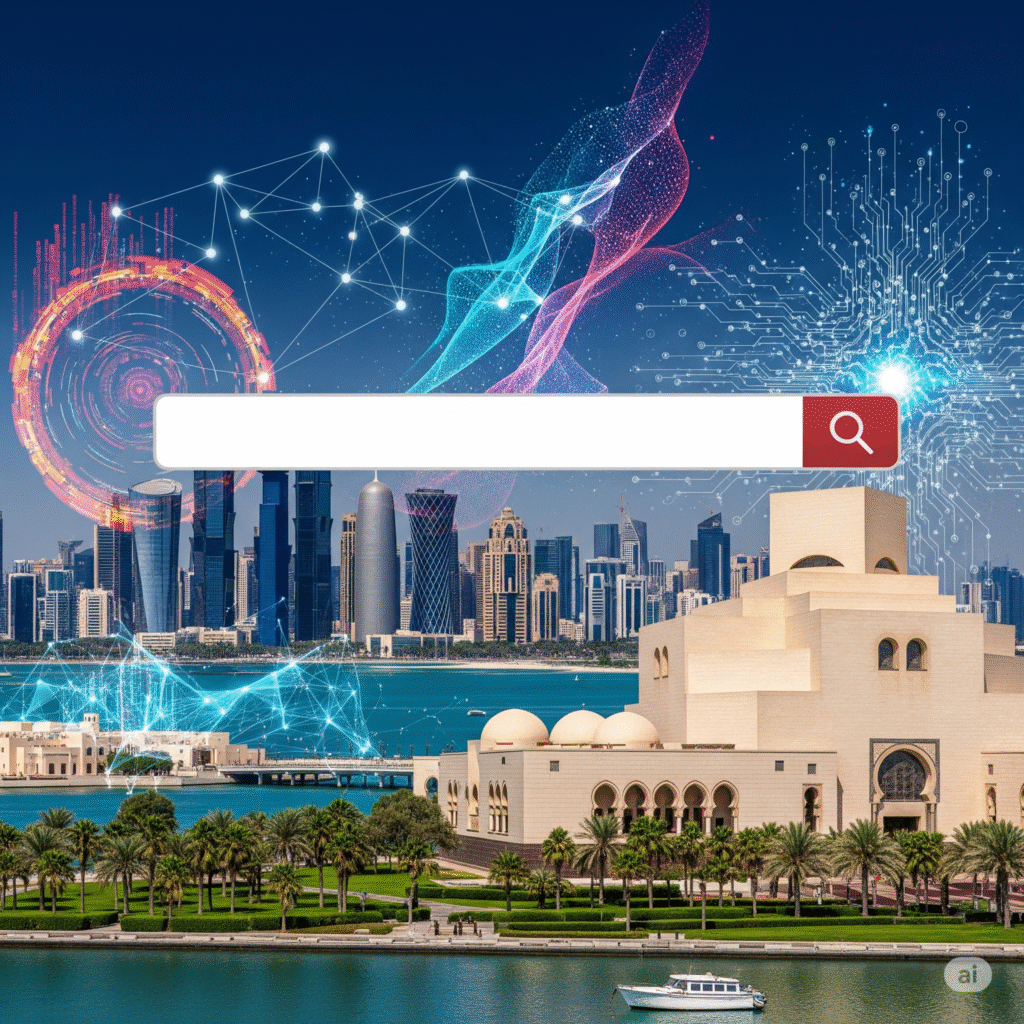
After years of living right here in the Gulf, one thing becomes crystal clear: what works for SEO in London or New York often just doesn’t fly in places like Doha, Riyadh, or Dubai. We’re talking about much more than simply translating your website. It’s about understanding the rhythm of the region, the way people think, speak, and search. For businesses truly looking to connect in the Middle East and North Africa (MENA), especially here in Qatar, Arabic SEO isn’t just an extra step; it’s absolutely essential, and it’s a whole different game compared to English SEO.
Right-to-Left: It’s Not Just a Detail, It’s How We Read!
The most obvious difference? Arabic reads from right to left (RTL). This isn’t just a minor detail; it completely changes how your website should look and feel. Your site’s design and layout (especially with RTL CSS) need to be built to guide an Arabic speaker’s eye naturally. If your website isn’t set up this way, it can feel awkward and hard to use, like trying to drive on the wrong side of the road. I’ve seen plenty of international companies just flip their English sites, and honestly, they often end up looking a bit jumbled, like a misaligned piece of clothing!
The Language Itself: Far More Than Just Words
This is where many businesses trip up. They assume a direct translation of their English keywords will magically do the trick. Voila, problem solved, right? Not quite. Arabic is incredibly rich and nuanced.
- So Many Dialects: While Modern Standard Arabic (MSA) is understood for formal stuff, people in the Gulf, particularly here in Qatar, often search using their local dialects. How someone in Doha searches for “best hotels” might be quite different from how a tourist or someone from another Arab country would phrase it. Your keyword research needs to dig deep, figuring out how real people in specific areas actually search, often using longer, more question-based queries. What’s common in Saudi might not be as common here in Qatar, and an Egyptian dialect might not resonate as strongly with a Qatari audience.
- Words That Morph: Arabic words can sprout many variations from a single root. While search engines are getting smarter, they still don’t quite grasp these word relationships in Arabic as well as they do in English. This often means you need to be very precise with your exact-match keywords to make sure you show up in search results. Forget generic terms; think exactly what a Qatari resident would type.
- Voice Search is Huge: With almost everyone glued to their smartphones here, voice search is incredibly popular. People are simply asking their phones questions in natural, conversational Arabic. Optimizing for these longer, more natural-sounding phrases – including local pronunciations for places or common Islamic terms – isn’t just a nice-to-have; it’s essential for catching a huge segment of the online audience.
Culture First: It’s All About Being Authentic
This might be the biggest lesson. You can’t just translate; you must localize. Localization means adapting everything – your content, your images, your messages – to truly connect with local values, traditions, and sensitivities. During Ramadan or Eid, for example, your campaigns need to be culturally appropriate and respectful, focusing on community and family values rather than just pushing products. A generic, “one-size-fits-all” translation often feels inauthentic, and frankly, people here can spot it instantly. Building trust means showing you truly understand and respect the local culture.
The Qatar Factor: Local Businesses Stepping Up Their Arabic Game!
It’s been fantastic to see more and more businesses right here in Qatar finally realizing the massive potential of a strong Arabic online presence. For a long time, many Qatari companies focused almost entirely on English, perhaps thinking it was enough for our diverse expat and international business community. But that’s definitely changing! We’re seeing a growing trend of local websites, from government services to big retailers and even smaller shops, investing heavily in expanding and improving their Arabic sections.
This isn’t just about adding a few translated pages. They’re developing full-blown Arabic content strategies:
- Dedicated Arabic Blogs & Resources: Companies are now creating original blog posts, guides, and helpful articles directly in Arabic, discussing local concerns, events, and interests. This really boosts their authority and relevance for Arabic searches.
- Localized Product Details: For online shopping, it means detailed product descriptions, customer reviews, and even payment information specifically for Arabic speakers, using locally understood terms and currencies.
- Smarter Local SEO: Many Qatari businesses are now keenly optimizing for local Arabic searches, putting keywords like “restaurants in Doha,” “car repair in Al Rayyan,” or “properties for rent in Lusail” right into their Arabic content and their Google Business Profiles. This is absolutely critical for connecting with local customers.
This shift is a huge positive! It means businesses are finally tapping into a vast, engaged audience that prefers to search and interact in their own language. This leads to a better experience for users, more engagement, and ultimately, a stronger bond with the local market.
Don’t Forget the Tech Side!
Of course, the technical bits of SEO are still super important. Properly set up hreflang tags are essential for multilingual sites; they tell search engines which language version of a page to show. And with so many people using their phones here, a mobile-first design isn’t just a good idea – it’s a must-have for successful Arabic SEO. While tools are getting better, optimizing for Arabic often still requires a more hands-on approach because of the language’s unique complexities.
So, if you’re serious about thriving in this vibrant market, don’t just translate your content. Invest in native Arabic-speaking SEO experts. Get someone who truly understands the nuances of the language, the pulse of the culture, and the unique ways people here search. It’s the only real way to connect with your audience and build a lasting online presence in the Gulf.
Leave a Reply